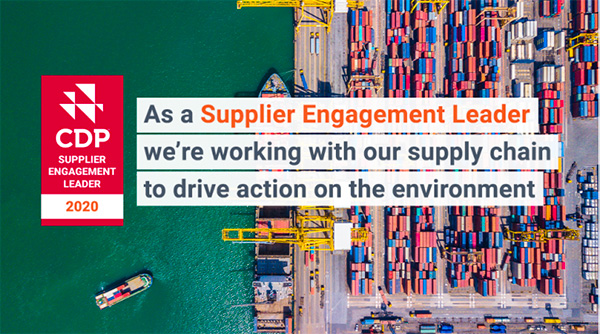Fruit of the Loom, Inc. Named 2020 CDP Supplier Engagement Leader
Fruit of the Loom, Inc. received recognition as a 2020 CDP (formerly known as the Carbon Disclosure Project) Supplier Engagement Leader, a designation for the top 7% assessed for supplier engagement on climate change. CDP is a nonprofit charity that runs the global disclosure system for investors, companies, cities, and regions to manage their environmental impacts. The world’s economy recognizes CDP as the gold standard for environmental reporting to build a truly sustainable economy.

Per the CDP, an organization’s average upstream emissions are approximately 11.4 times greater than their direct operations – which shows how vital supplier engagement is to achieve ambitious climate goals, such as science-based targets.
Following the 2020 global score release, companies responding to the full version of the CDP climate change questionnaire also received a Supplier Engagement Rating (SER) in addition to their climate change score. The companies with the best SER are celebrated as Supplier Engagement Leaders – which this year is the top 7% of companies who disclosed to the full climate questionnaire.
The SER provides a rating for how effectively companies are engaging their suppliers on climate change. CDP assesses performance on supplier engagement using a company’s response to selected questions on governance, targets, scope 3 emissions, and value chain engagement in the CDP climate change questionnaire.
Sonya Bhonsle, Global Head of Value Chains, CDP commented, “Companies’ emissions don’t end at the factory door. In fact, CDP data shows a company’s supply chain emissions are over 11.4 times greater than its direct emissions on average. Meaningful corporate climate action means engaging with suppliers to reduce emissions across the value chain. Despite the challenges from COVID-19, in 2020 nearly 400 companies achieved a place on CDP’s Supplier Engagement Leaderboard. Congratulations to these companies – as a Supplier Engagement Leaders, they are driving the transition towards the net-zero sustainable economy.”
For more information, click here.

